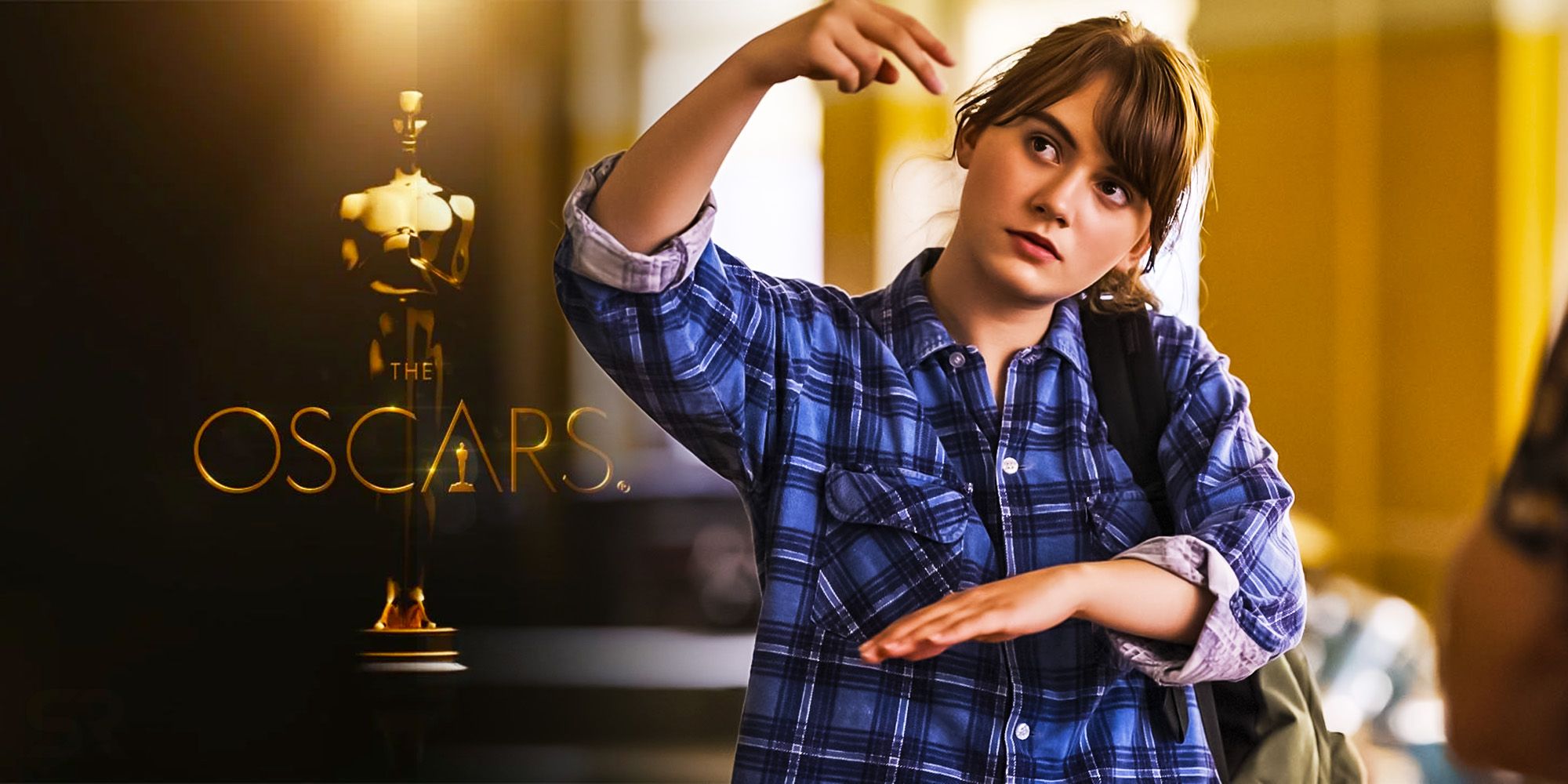Apple TV+'s CODA emerged as the big winner of the 2022 Oscars, achieving several major milestones for the Deaf community, women directors, and streaming services alike. Sian Heder's CODA had a perfect night at the 94th Academy Awards ceremony, going three-for-three winning not only the coveted Best Picture award but Best Adapted Screenplay and Best Supporting Actor as well. A remake of the 2014 French comedy-drama The Bélier Family, CODA tells the coming-of-age story of Ruby Rossi (Emilia Jones), the only hearing member of her Deaf family, as she grapples between her passion for music and her devotion to her parents and brother. Defined by its heartfelt themes and the superb chemistry of its cast, CODA represents a monumental and long-overdue accomplishment in filmmaking, which its 2022 Oscars Best Picture win accentuates.
Despite the existence of more than 70 million Deaf individuals around the world as of 2021, mainstream Hollywood has a longstanding trend of excluding people with deafness from its storytelling and from its highest honors. Prior to 2022, CODA star Marlee Matlin was the only deaf person to earn an acting Oscar, as she won Best Actress in 1987 for Children of a Lesser God. Thirty-five years later, Troy Kotsur's Best Supporting Actor victory for his performance as Ruby's father, Frank Rossi, marks the first triumph for a deaf person in the category.
CODA's trio of Oscar wins resembles a major breakthrough in an industry that has seldomly recognized the lived experiences of a significant percentage of our society. The movie's status as only the third woman-directed Best Picture winner also highlights the Academy's long-overdue acknowledgment of female filmmakers. Furthermore, CODA's success as the first streaming-service title to win the award constitutes the increasing emergence of streaming platforms in the realm of mainstream movies. All in all, CODA achieved much more than the film industry's top prize when it won Best Picture at the 2022 Oscars.
CODA Is The First Streaming Service Movie To Win
As the first streaming-service movie to win Best Picture, CODA highlights the ever-increasing prominence of streaming in the film world. Streaming-exclusive titles are gaining ground on theatrical releases in terms of quality and popularity. It's worth noting that Netflix's The Power of the Dog stood as the perceived runner-up in the Best Picture race, indicating that a streaming-service film contending for the award was far from a one-time affair. Thus, it's highly unlikely that CODA will remain the only streaming movie with a Best Picture Academy Award to its name for long.
CODA's win also serves as a major gain for Apple TV+, which has often been overlooked compared to other streaming services such as Netflix and HBO Max. Just over two years since the launch of Apple TV+, the platform has delivered a recipient of Hollywood's highest honor for a motion picture, which should aid its popularity in the long run. CODA's triumph additionally sends a message to streaming companies that investing in movies will pay off. It's clear that the film industry was dedicating more to streaming prior to CODA's release, though the film's Best Picture win at the Oscars proves that streaming increases opportunities for variation in storytelling and higher production values of streaming-service films can achieve lofty recognition and even surpass that of theater exclusives.
CODA Highlights The Experience Of The Deaf Community
CODA's most prevalent success as a film lies in its storytelling. Its thoughtful narrative places a much-needed spotlight on the experiences of deaf individuals — both positive and negative. CODA authentically reflects both the challenges and strengths of deaf people's lives from the barrier between the deaf and hearing world to the collective love and support within a family of both deaf and hearing members. Most importantly, CODA features deaf actors in its portrayals of deaf people — a necessary aspect that The Bélier Family failed to deliver. It's discouraging that a film released as recently as 2014 fell short of this basic standard for representation, which makes CODA's casting all the more noteworthy. As a result, CODA's retelling of its source material holds a larger meaning in the form of its genuine representation by way of its casting of deaf actors Kotsur, Matlin, and Daniel Durant as Ruby's parents and brother.
CODA's mere existence as a film represents a monumental feat for the Deaf community's representation in Hollywood, though its Best Picture recognition, alongside Kotsur's Best Supporting Actor win, steers the industry's close-minded valuing of stories in a more optimistic direction. It's not just CODA's representation that matters, but also the acknowledgment that this was a story worth telling and celebrating. When it comes to Deaf representation in popular media, one cannot overlook that in the same year of CODA's release, Marvel introduced its first deaf superhero in Lauren Ridloff's Makkari in Eternals. Director Chloé Zhao's superhero flick did not receive any Oscar nominations, though its popularity further evidences the progress made for deaf actors and deaf characters in mainstream movies over the last year.
CODA Is The Third Best Picture Winner Directed By A Woman
Rounding out CODA's series of milestones lies its stature as a film directed by a woman. Sian Heder may have missed out on a nomination for Best Director, but CODA still made history by becoming the third Best Picture winner (and second in a row) to feature a female director. Following in the footsteps of Chloé Zhao, who was awarded Best Picture and Best Director in 2021 for Nomadland in 2021, CODA continues a promising trend for women behind the camera. Bestowing another woman-directed film with Best Picture honors holds a heavy importance given that the aforementioned Heder and Zhao make up two of only three women filmmakers who have ever won the award. The fact that it took the Academy until 2010 to crown Kathryn Bigelow's The Hurt Locker as the first Best Picture winner directed by a woman is not a statistic of which the Academy should be proud, though its championing of woman-directed films in each of the last two Oscars ceremonies is a welcome step toward more diverse fields of nominees. This kind of success for women in film is long overdue and CODA will remain a trailblazer for women directors. Years from now, CODA's Best Picture win should be remembered for making a powerful statement about what quality representation looks like in a film — both in front and behind the camera.




